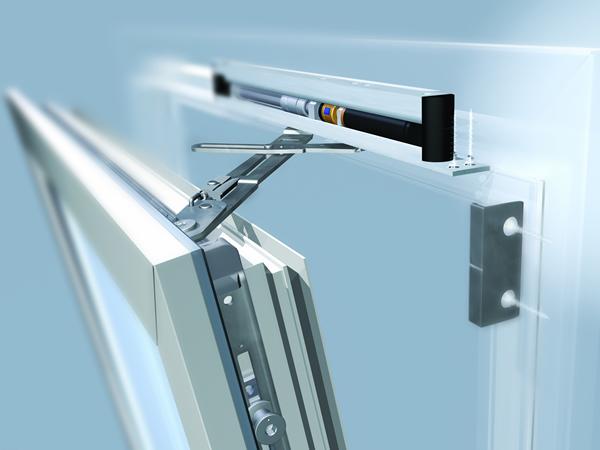
Date: 17 November 2016
The Roto Group’s long-term company strategy is primarily based on two pillars. Their foundation is global alignment as well as the transformation from a pure component manufacturer to a window and door technology system vendor.
This was the chairman of the board of directors’, Dr Eckhard Keill, explanation provided during the construction supplier’s 11th International Trade Press Day.
At the same time, in mid-November 2016, he emphasized the “specific customer benefits as the key basis of our actions” in front of around 70 journalists from 17 countries. In Berlin, he illustrated the specific results that this leads to in practice based primarily on the example of the consistently pursued system strategy.
With his first pioneering act, in 1935 company founder Wilhelm Frank heralded a new window era, Keill recollected the company’s beginnings.
“Roto N” was the name of the first industrially produced hardware, which allowed for a three-hand operation to turn as well as tilt windows. Several major development steps for the realisation of two- and single-handed operation ultimately led to the “Roto NT” turn of the millennium première.
The world’s best-selling Tilt&Turn product range’s “career” is thanks primarily to the permanent innovative expansion to the universal module-like range. In this respect, this product family already illustrates the intensive system concept.
Apart from this, the signs for the current global player status were set at a very early stage in 1954, with the foundation of the first international Belgian and Dutch subsidiaries. The Group now has a dense global production plant and sales company network. The resulting high level of internationality has continually proven itself to be a strategy support pillar.

“In good and safe hands”
This included targeted corporate takeovers, which always had to integrate into the long-term concept. Roto also realises its international growth opportunities through acquisitions wherever they “make strategic sense and are economically prudent”.
There are two deciding factors. Keill identified them as the regional market in which the respective company operates as well as its product know-how. Company acquisitions are always long-term investments.
They naturally must require internal economic stability. This is precisely what distinguishes Roto, meaning that acquisitions have previously been financed without additional borrowed funds.
This gives customers the certainty that the acquired companies are being put into “good, stable and safe hands”. Specifically, this means a sustainable increase in reliability – an extremely relevant element, especially in turbulent market phases.
The same applies for the higher innovative capacity, which results from integration into the company network. Below the line, this kind of acquisition strategy creates a “Win-win-win situation” for Roto, the acquired company and the customers. This is documented by five examples from the recent and most recent past.

Consistent expertise development
The 2008 German specialist Gluske-BKV acquisition allowed the company to “fully achieve” the aim of expanding its “Door” business area position. With a complete range from a single source, Roto could deliver all the necessary, coordinated components to main door producers.
The door portfolio includes the entire range, from multi-point locking systems to door hinges and threshold solutions. The acquisition also led to a glazing blocks segment leadership position which rounded-out the window service offer.
The 2012 Fasco Canadian hardware specialist acquisition was an important realignment element in North America, stressed Keill. The targeted, significant market position expansion in the region as a result of the commitment was a success in many respects.
The company’s product range was primarily focussed on the middle market segment, which complemented the Roto portfolio “very well”. The result: a noticeable increase in attractiveness for new Canadian and USA customer groups.
The additional manufacturing and storage capacity ultimately also facilitated the ability to promptly respond to customer requests. Roto Fasco Canada – which the company is now called – is an important North American bridgehead and stands for a “special acquisition success story”.
In 2013, Fermax, a Brazilian hardware producer, joined the company network. Similar to the Fasco acquisition, from a geographic and product policy perspective the group member enabled the relevant markets’ targeted involvement across the entire region as well as emphasised the general “Close to the customer” principle.
As number 2 in Brazil, Fermax not only provided Latin America with necessary manufacturing and product range expertise, it also guaranteed dealers’ and system producers’ comprehensive supply thanks to a tight distribution network.
The Deventer Group, represented by companies in Germany, the Netherlands, Poland and Russia, has been part of Roto since 1 January 2016. The leading specialist in TPE (thermoplastic polymers) window, door, gate, frame and glazing sealing profiles is also of significant importance from a product policy perspective.
For windows, gaskets and hardware fundamentally formed an indispensable connection. For main doors, the previously offered technology range was “integrally” rounded out by the entire door gasket.
System competence could hardly be more comprehensive and customer-friendly, yet provides market partners key practical benefits, primarily in the areas of security, reliability as well as process efficiency and cost-effectiveness.
The most recent investment, the Danish specialist Peder Nielsen (PN) industrial division takeover, which also took place in 2016, is another “prime example” of compliance with the key “regional market” and “product know-how” purchasing factors.
The acquisition enabled Roto to close an important gap in outward opening window hardware systems, especially in Scandinavia and Great Britain. Roto as the sole Central European provider can now deliver a complete window and door technology portfolio to Scandinavian area customers.
The Western Europe business area took over PN customers’ management in March 2016. In addition, the manufacturing area is currently being integrated into the Roto Lövö (Hungary) and Kalsdorf (Austria) locations’ consolidated production.

Exemplary benefits’ trio
All the outlined investments support the transformation from a pure component manufacturer to an interlocking system solutions’ partner, summarized Keill. He draws the conclusion from a “logical finding”:
The better the window and door components’ alignment to one another, the lower the risk that individual parts will not have the necessary “compatibility”. This significantly reduces window and door producers’ “business risk” for instance.
By contrast, it results in clearly enhanced opportunities to successfully counter the intensified competitive, price and profit margin pressure. The use of secure, high-quality systems is therefore the right strategic decision, as it saves costs and time.
At the same time, it ensures additional speed, more customer satisfaction and, ultimately, greater added value. Keill also used three exemplary solutions by way of illustration.
Example 1: The continuously increasing importance of the “barrier-free house” would be best served by integrated systems, including from the perspective of the implementing operations. The “everything from a single source” competence means that Roto in this regard can offer exclusivity in the sector.
This particularly applies for the zero-barrier sector (0 mm); for main and terrace doors, this was achieved by combining the “Eifel TB” threshold with the “Texel” automatic floor door-gasket as well as a new weather profile strip.
The trio also forms the basis for zero-barrier balcony door solutions. This could then be joined by the respective necessary “NT” hardware product range elements.
Example 2: In particular, the trend towards automation requires high ease of operation, functional and visually appealing system units. This requirement is satisfied by the “E-Tec Drive”, a concealed electrical tilt-only opening and locking drive, combined with the mechanical “NT” Tilt&Turn hardware.
The “E-Tec Control” products combination allows the package to take on additional guidance and control tasks for added security, convenience and energy efficiency at home.
Example 3: Besides the profile and glass, hardware and gaskets belong to the “Window” system’s four relevant components. The Roto-Deventer development network means that the duo can be precisely aligned to each other in future.
Everything works and is harmonised from the very beginning without the window fabricator having to perform time-consuming tests and inspections at various points or having to find solutions to a problem together with two separate suppliers.
This ensures that the elements satisfy the normative values and pass the prescribed tests at accredited institutes.
Customers receive numerous benefits from these and other systems. Interlocking solutions, lower production and logistics costs and improved reliability are additional benefits, together with ensured functionality, faster processing and simplified installation. In conclusion, the Roto CEO considers this a “clear winning concept”.


Quality at every level
In the evening before the Trade Press Day, journalists were able to gain a “live impression” of the Deventer Berlin-Spandau founding location’s sealing profile production area, which is currently home to over 70 employees.
These 10,000-square metre company premises house a manufacturing area and warehouse covering over 3,000 square metres, reported the general manager Lüder Pflügner.
The production capacity amounts to just under 240,000 metres per day or 58.5 million metres per year.
Deventer defines itself as a quality supplier in every respect. In 1994, the company was already one of the first in the industry to be certified in accordance with DIN EN ISO 9001 and since 2008 has implemented the European sealing profiles standard (DIN EN 12365 1-4).
The exclusive use of “high-quality and tested materials” is as much an internal commitment as the performing of regular quality tests on internal test equipment.
Deventer also works intensively on joint research and development together with institutes and suppliers. In 2015 alone, over 180 sealing profiles were designed and drawn, resulting in the construction of about 50 extrusion tools.
The new Roto Group member’s delivery program also includes prefabricated gaskets, which were impressive due to their high tolerance compensation, their ageing, weather and ozone resistance as well as due to the fact that they can be welded and adhered in corners.
Furthermore, the independently tested profiles are predestined for automatic manufacturing and are available as “extremely intricate gaskets” in every desired colour.
At the Berlin plant, manufacturing takes place on 12 tri- and co-extrusion lines of different sizes and production quantities. According to Pflügner, this takes place with a total of 27 extruders.
The production line, which is equipped with modern control systems, satisfies the “highest productivity and quality demands”. This is also reflected in Deventer’s reject rate of less than 1%.

 600450
600450


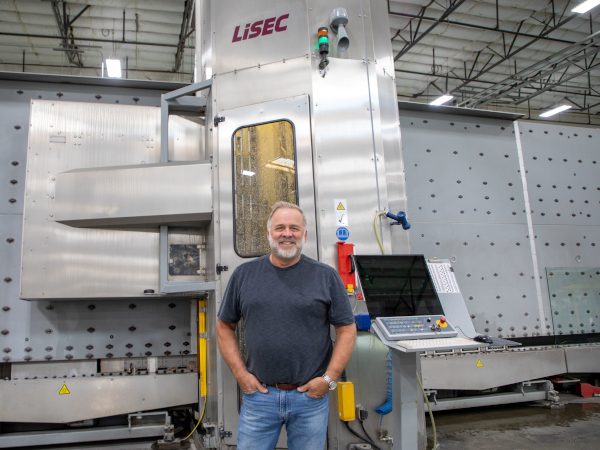
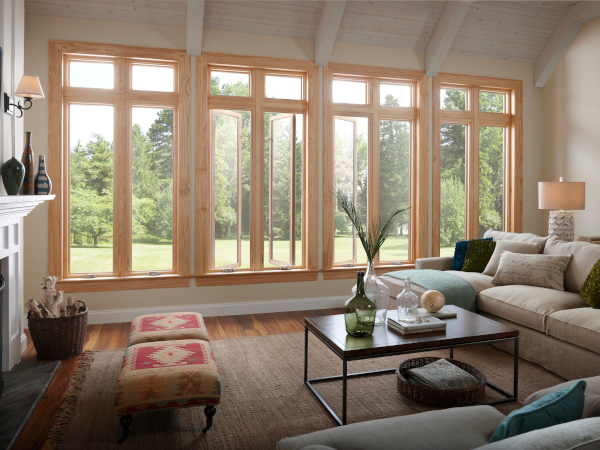

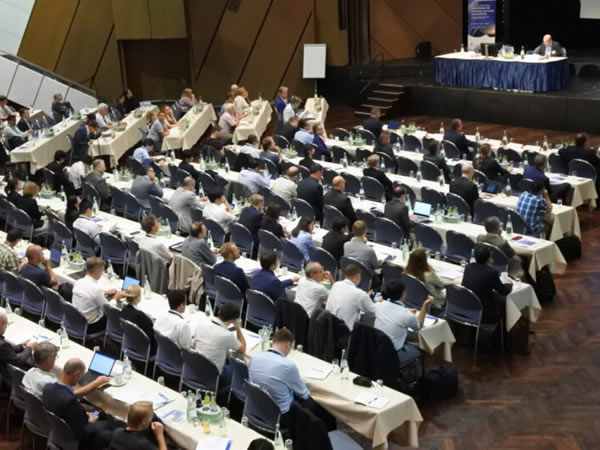
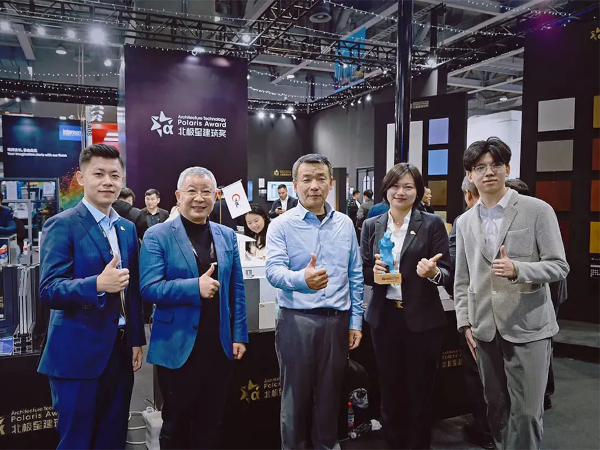







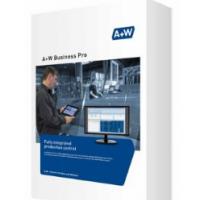
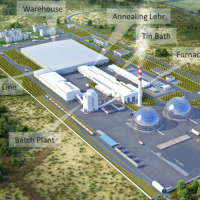
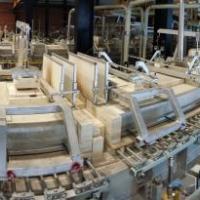

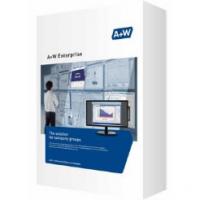
Add new comment